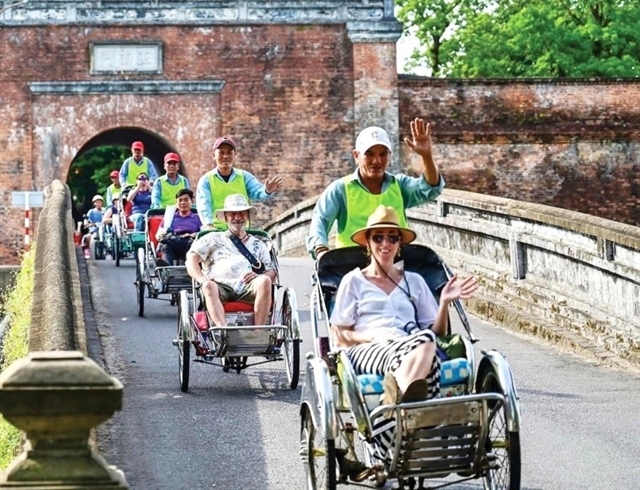 Society
Society

The southern province of Bà Rịa – Vũng Tàu plans to reduce its poverty rate to 0.5 per cent under national poverty standards by 2025.

|
| Women make products from water hyacinth in Bà Rịa – Vũng Tàu Province’s Châu Đức District. The province has provided vocational training to poor households to help them escape poverty. – VNA/VNS Photo Hoàng Nhị |
BÀ RỊA – VŨNG TÀU – The southern province of Bà Rịa – Vũng Tàu plans to reduce its poverty rate to 0.5 per cent under national poverty standards by 2025.
The province has 2,083 poor households, accounting for 0.73 per cent of total households.
To meet the target, the province will offer vocational training and jobs to the poor, and other support policies.
Speaking at a seminar held in the province on Wednesday, Đinh Thị Trúc My, deputy director of the province’s Department of Labour, Invalids and Social Affairs, said the province’s social allowance rate for the poor in 2016 – 20 was 1.2 times higher than the national rate.
The province’s People’s Committee, relevant departments and agencies and localities had implemented poverty-reduction policies with effective and suitable measures, she said.
Support like soft loans, health care, education and poverty reduction models were given priority.
The province’s Fatherland Front Committee and its member organisations mobilised financial contributions from individual and organisations to build houses for the poor, provide scholarships to poor students, and give gifts to poor households on national holidays and the Tết (Lunar New Year) festival.
The province also gave poor ethnic households animal and crop seeds, houses, household use water, and school fees.
It invested in power, roads and schools to improve the lives of poor ethnic households.
Last year, Bà Rịa City became the province’s first locality to have no poor households.
Nguyễn Thị Bích Thương’s family in Bà Rịa City’s Phước Hưng Ward escaped poverty last year after her family was given a soft loan to expand vegetable farming in 2017 and was offered instruction in techniques for growing vegetables.
Her family earns VNĐ10 million (US$432) a month from growing vegetables and has built a house with financial support from the province’s support policies for the poor.
“My family has a stable income now,” she said.
Previously, Thương and her husband worked as hired workers and grew vegetables, but had an unstable income.
Đất Đỏ District has also reduced poverty significantly in recent years. The district’s rate of poor households fell from 11.3 per cent in 2016 to 0.22 per cent last year.
Trần Thị Kim, head of the district’s Bureau of Labour, Invalids and Social Affairs, said the district had effectively implemented support measures suited for poor households.
With contributions from political-social organisations, associations and companies in and outside the district, the district had been very effective in reducing poverty, she said.– VNS




